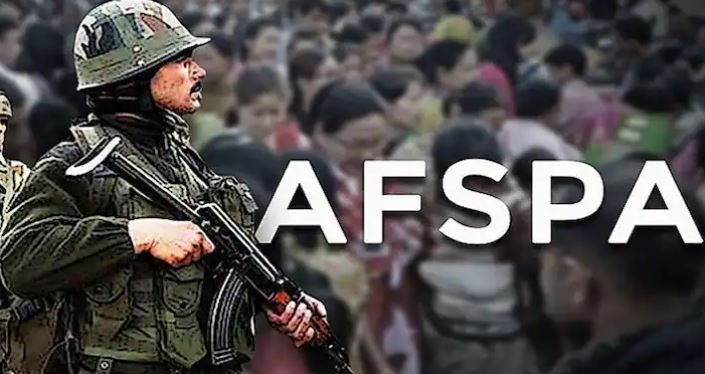AFSPA – Background, Provisions & Concerns


Context
- Government’s recent announcement to reduce the number of disturbed areas where the full force of this onerous law comes into play.
What the editorial is about?
- Why the AFSPA law has or has not been successful?
AFSPA: An Analysis
- AFSPA was adopted in 1958 during the early days of the Naga uprising to apply to what was then the state of Assam and the union territory of Manipur.
- The counterinsurgency campaigns against the Nagas were counterproductive.
- In the following decades, as new states were formed in Northeast India, AFSPA was amended to accommodate the names of those states.
- Seven of the region’s eight states have been at the receiving end of AFSPA at one time or another.
- Over the past six decades, AFSPA use has extended well beyond the actual conduct of counter-insurgency operations.
- Multiple states and non-state armed actors have operated under its shadow.
Major provisions under AFSPA
Enormous powers to the armed forces
- The armed forces can make preventive arrests, search premises without warrants, and even shoot and kill civilians, once a state — or a part of a state — is declared “disturbed” under this law.
Prior approval of the GOI for legal actions
De facto immunity from prosecution
- Legal action against those abusing these powers requires the prior approval of the central government.
Provision to call on the armed forces for assistance
- AFSPA allows civilian authorities to call on the armed forces to come to the assistance of civil powers.
Major concerns
The de facto emergency regime
- A disturbed area proclamation under AFSPA has uncanny similarities with emergencies or states of exception — including martial law and states of siege.
- Critics charge that it effectively suspends fundamental freedoms and creates a de facto emergency regime.
Fake encounters
- In 2012, a petition was filed in the Supreme Court to investigate as many as 1,528 cases of fake encounters that allegedly occurred in the state between 1979 and 2012.
- The Supreme Court has appointed a three-member commission to inquire into the first six of the 1,528 cases in the petition.
- Its interim judgment of July 2016 said that “there is some truth in the allegations, calling for a deeper probe”.
- In the court’s view, AFSPA clearly provided the context for these killings.
Attempts that were made to review the AFSPA
Supreme Court
- When the Supreme Court pronounced AFSPA constitutional in 1997, it also recommended some changes.
- Among them was the stipulation that a “disturbed area” designation be subjected to review every six months.
Jeevan Reddy Committee
- In 2004, the then central government set up a five-member committee under former Supreme Court Justice Jeevan Reddy, which submitted its report in 2005 recommending the repeal of AFSPA, calling it “highly undesirable”, and saying it had become a symbol of oppression.
The Second Administrative Reforms Commission
- Subsequently, the Second Administrative Reforms Commission, headed by Veeerapa Moily, endorsed these recommendations.
In some parts of Northeast India, AFSPA is now routinely extended every six months. But there is little evidence that any meaningful review occurs at those times.
Conclusion
A missed opportunity
- One must welcome the government’s announcement to reduce the number of such areas.
- But not to consider the repeal of this law, which is now almost as old as the Republic, is a missed opportunity to reflect on why this law has or has not been successful, and to learn from this history and strengthen the foundation of our democracy.
Practice Question for Mains
- It is prudent to repeal AFSPA now. But the need of the hour is to study its record to strengthen the foundation of Indian democracy. Examine. (250 Words, 15 Marks)
Referred Sources
If you like this post, please share your feedback in the comments section below so that we will upload more posts like this.

